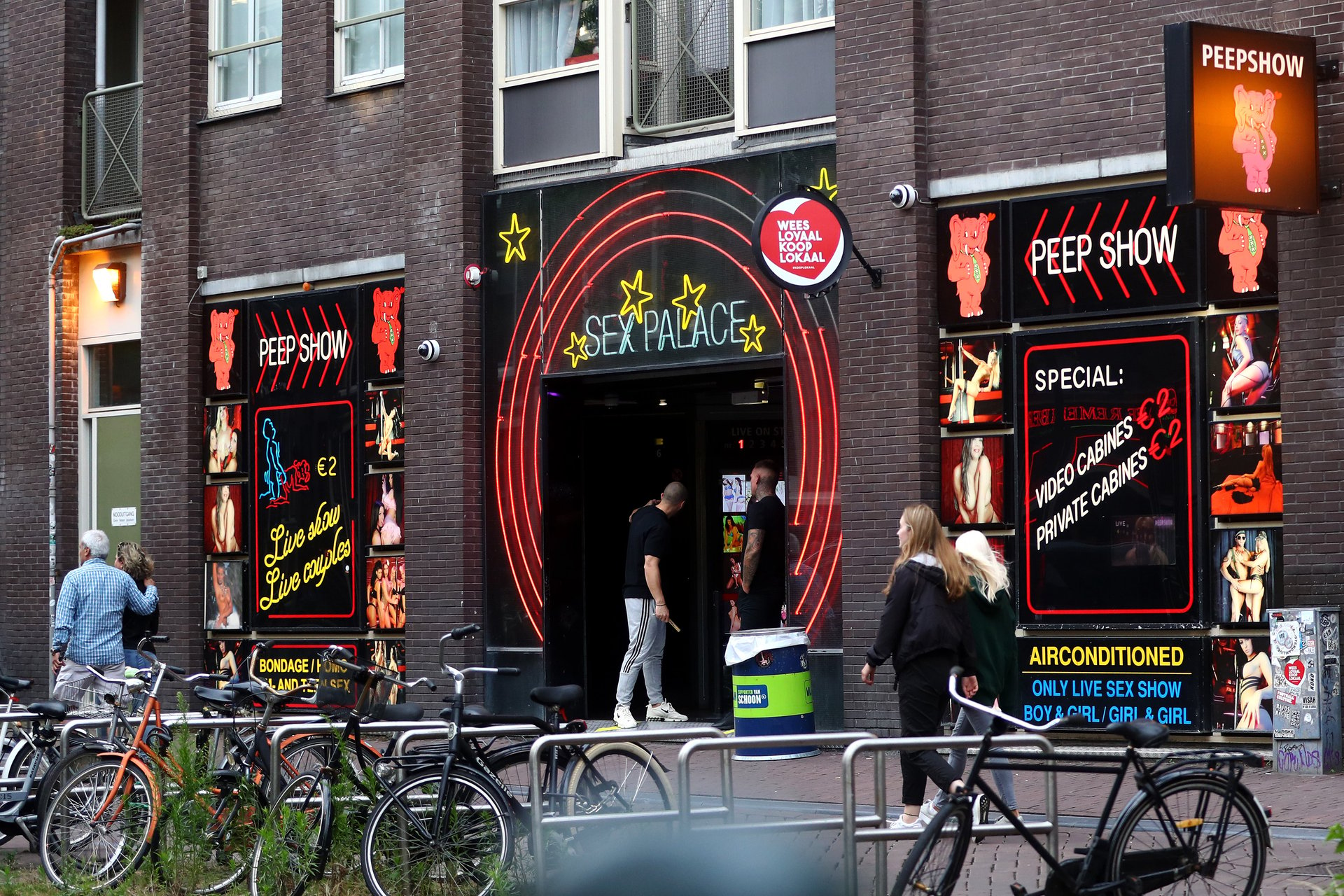Amsterdam looks to shake off its image as Europe’s sex and drugs capital
The infamous party city is cracking down on rowdy tourists, especially the British

Amsterdam’s municipal government has proposed a series of reforms to reduce “nuisance tourism,” including restrictions on cannabis sales, stag parties, and pub crawls. The popular party destination for European visitors will also run a “stay away” ad campaign, as officials aim to improve livability and safety for its residents.
Suggested Reading
The Dutch city has long been a hot spot for visitors looking to enjoy liberalized drug laws, legalized sex work, and an “anything-goes” attitude. But as residents increasingly complain of late-night noise and dangerous encounters with unruly tourists, elected officials are looking to rebrand the city as a destination for a more sophisticated traveler.
Related Content
A series of ads–dubbed a “discouragement campaign”–will initially target tourists from the United Kingdom. Almost 2.5 million British visitors travel to Amsterdam each year, making up more than 10% of the city’s annual tourists. Local businesses complain that the influx of tourists looking to party has driven residents out of the commercial center of the city and forced the local economy to rely on drugs and nightlife.
The reforms also include banning public cannabis consumption, converting hotel spaces into residential homes, and setting a hard cap on the number of available beds in the city. The City Council will vote on the proposed measures tomorrow (Dec 21).
Quotable:
“Some businesses misuse Amsterdam’s image to sell it as a place of ‘unlimited possibilities.’ As a result, some groups of visitors think of it as a city where anything goes. This kind of tourism, as well as offerings specifically targeting these groups, is not considered desirable by the Municipal Executive.” –Sofyan Mbarki, Amsterdam’s deputy mayor.
The future of sex work in Amsterdam
These reforms build on a proposal to construct a 15,000-square-foot multi-story “erotic center” to relocate sex workers from the red-light district to a location outside of the city. Officially named a “public mixed-use hotel and recreation center,” the proposal was first floated in 2021 by Femke Halsema, the city’s mayor. The building would include 100 small rooms, two bars, and a publicly funded strip club.
The location of the center aims to relocate sex tourists away from the historic De Wallen neighborhood in the center of the city, commonly referred to as the city’s red-light district. There would be civil servants managing the building, emergency services on hand, and only one entrance and exit for security purposes.
The Netherlands legalized sex work in 2000 with the intention to regulate the industry and protect its workers. There are approximately 200,000 sex workers active in the Netherlands, with 40% based in Amsterdam. They are expected to register with their local Chamber of Commerce and pay income tax. According to the Dutch government, sex work and recreational drug use contribute €2.5 billion ($2.7 billion) to the national economy annually.
Germany’s up in smoke
A potential vacation alternative for rowdy Brits looking to let loose could be found right next door. Germany is poised to become just the second European nation to allow the recreational usage of marijuana after the government released a plan to legalize the drug in October.
Before any final decision, the European Commission will first have to determine whether the proposed policy change contradicts a 2004 legal decision that regulates drug laws across the European Union. While weed has been decriminalized in a number of European countries, it is only legal to grow and sell in the island nation of Cyprus. In the Netherlands, cannabis usage is largely tolerated in cafes and private residences, but the commercial cultivation of the drug for commercial purposes is still illegal.
Already Europe’s largest economy, legalizing the recreational sale and usage of marijuana could be an economic boon for Germany. The proposed plan mandates that all demand be met by domestic production, which would effectively create a new, government-subsidized market. According to a recent report, legalizing cannabis could increase Germany’s annual tax revenues by approximately €4.7 billion ($5 billion) and create 27,000 new jobs.
